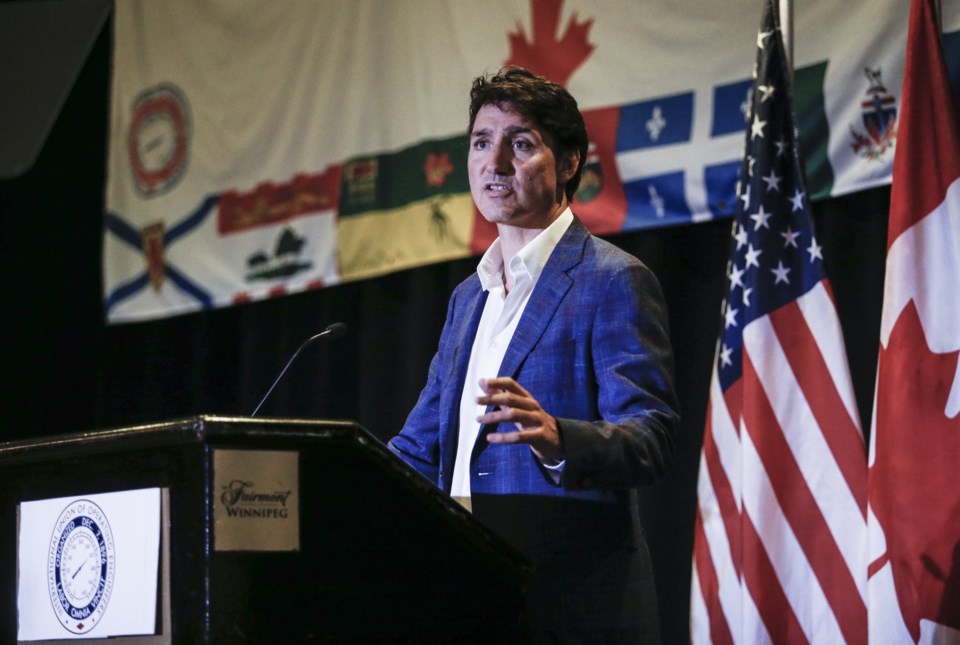WINNIPEG — Prime Minister Justin Trudeau has defended his government's move to call for binding arbitration and force an end to a work stoppage at the country's two major railways, as some union leaders accused the government of taking away their bargaining rights.
In a 15-minute speech on Wednesday to a meeting of the International Union of Operating Engineers, Trudeau touted his government's track record on labour laws and said the call for binding arbitration at Canadian National Railway and Canadian Pacific Kansas City was made out of necessity and “reluctantly."
“Unfortunately, CN and CPKC took the deeply unhelpful decision last Thursday to lock out employees after talks reached an impasse,” Trudeau said.
“That came with a cost of over a billion dollars of shipments per day … and it raised serious public safety concerns, with everything from propane for remote hospitals to chlorine for safe drinking water being transported on our rails.”
CPKC workers went on strike at the same time the lockout took effect. On Saturday, the Canada Industrial Relations Board approved the government’s request and ordered binding arbitration and an end to the work stoppage.
The Teamsters Canada Rail Conference, which represents 9,300 railway workers, has blasted the government's move, saying it takes away bargaining rights from workers.
The heads of the longshore workers unions from Montreal, Vancouver and Halifax also criticized the move.
"The decision sets a dangerous precedent for future labour disputes and sends a signal to Canadian companies that when negotiations get tough, the federal government will always come to their rescue to help them trample on their employees’ rights,” the unions said in a joint press release Wednesday.
Trudeau's talk came in the lead-up to a Sept. 16 byelection in the Elmwood-Transcona riding in Winnipeg's east end. The riding has a history of strong labour ties, and has been an NDP stronghold since its creation 35 years ago, except for one term in 2011 when the riding voted Conservative.
In his speech, Trudeau pointed to changes his government has implemented since coming to power in 2015, such as a law to ban replacement workers during labour disputes, which was applauded by the audience.
Trudeau did not take questions from reporters Wednesday, and media members were told to leave the room before members of the union got to ask the prime minister questions.
Later in the day, Trudeau paid a brief visit to the office of Ian MacIntyre, the Liberal candidate in the Elmwood-Transcona byelection, and thanked volunteers and supporters.
In the evening, he spoke to members of Manitoba's Hindu community at a temple in south Winnipeg and praised Canada's diversity.
"Canada is not a place that asks you to leave your Hinduism at the border when you come here."
— With files from Christopher Reynolds in Montreal
This report by The Canadian Press was first published Aug. 28, 2024.
Steve Lambert, The Canadian Press




